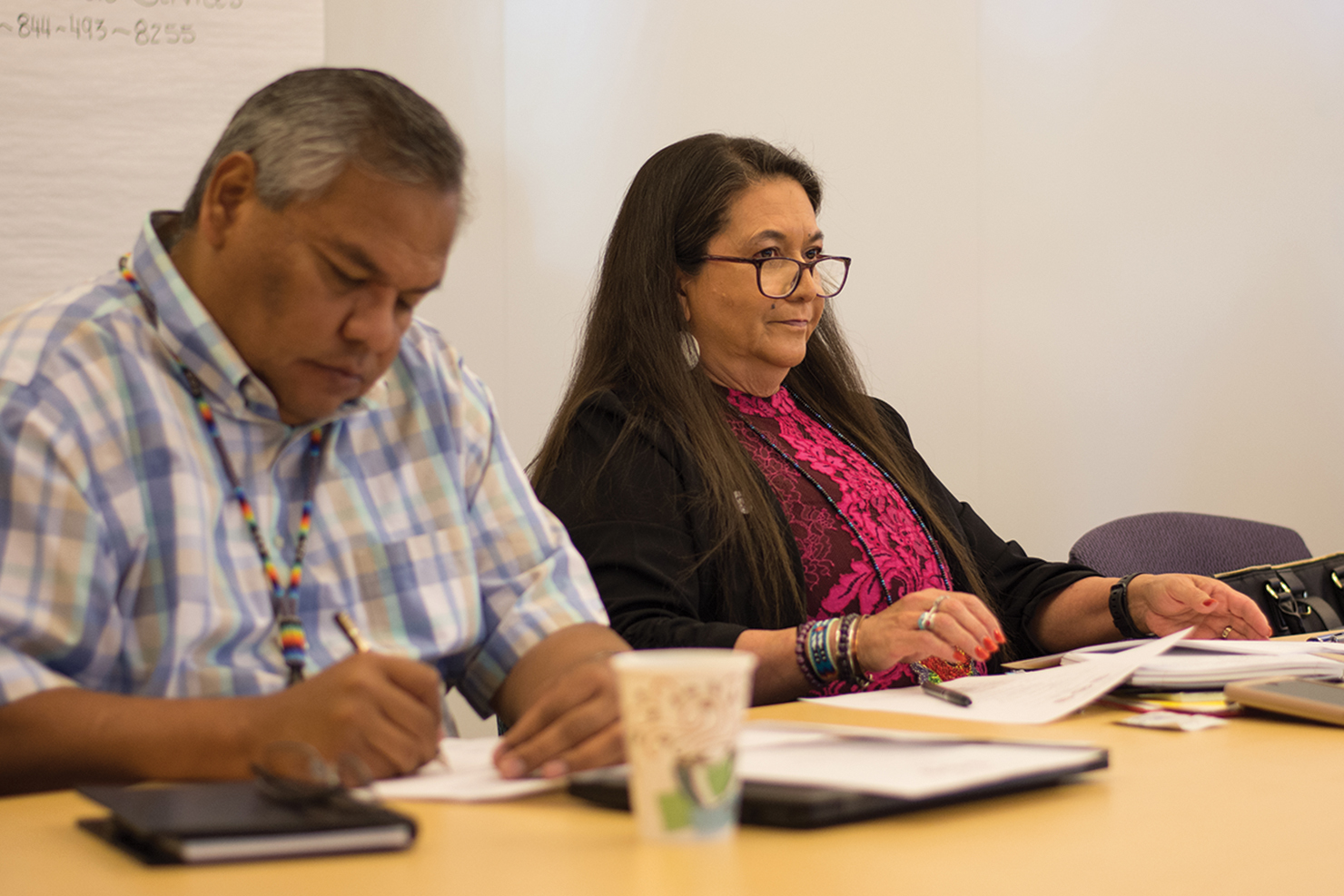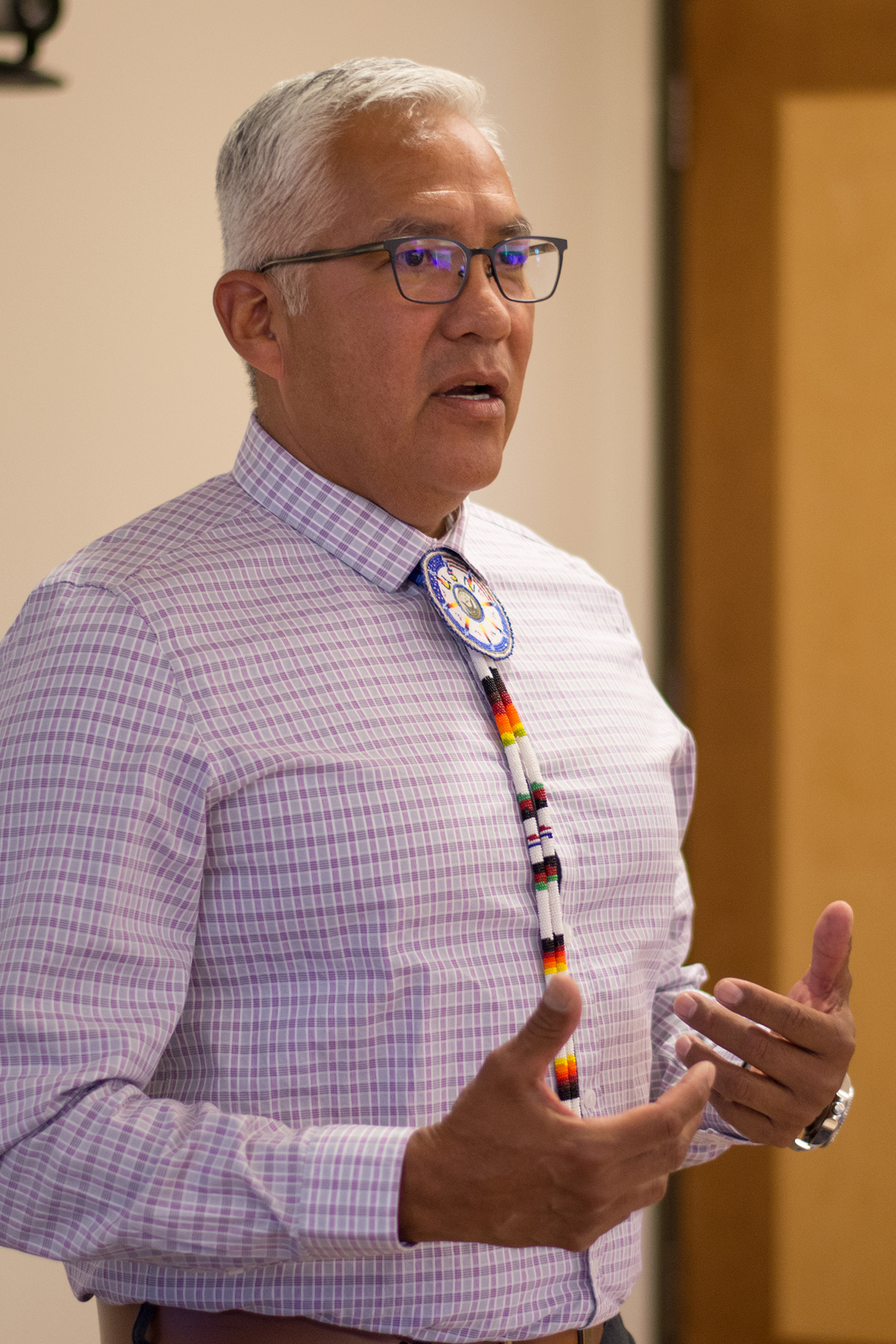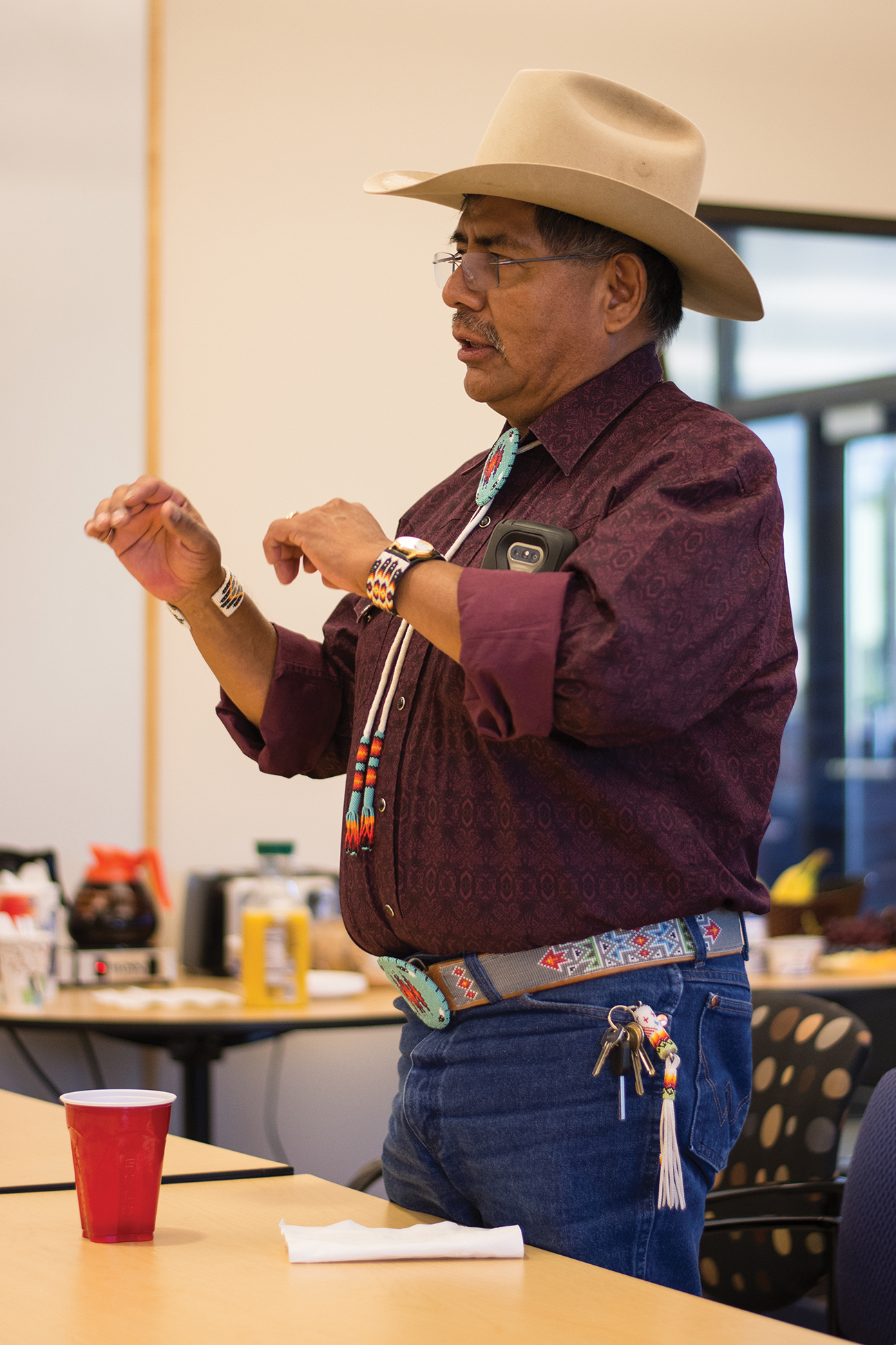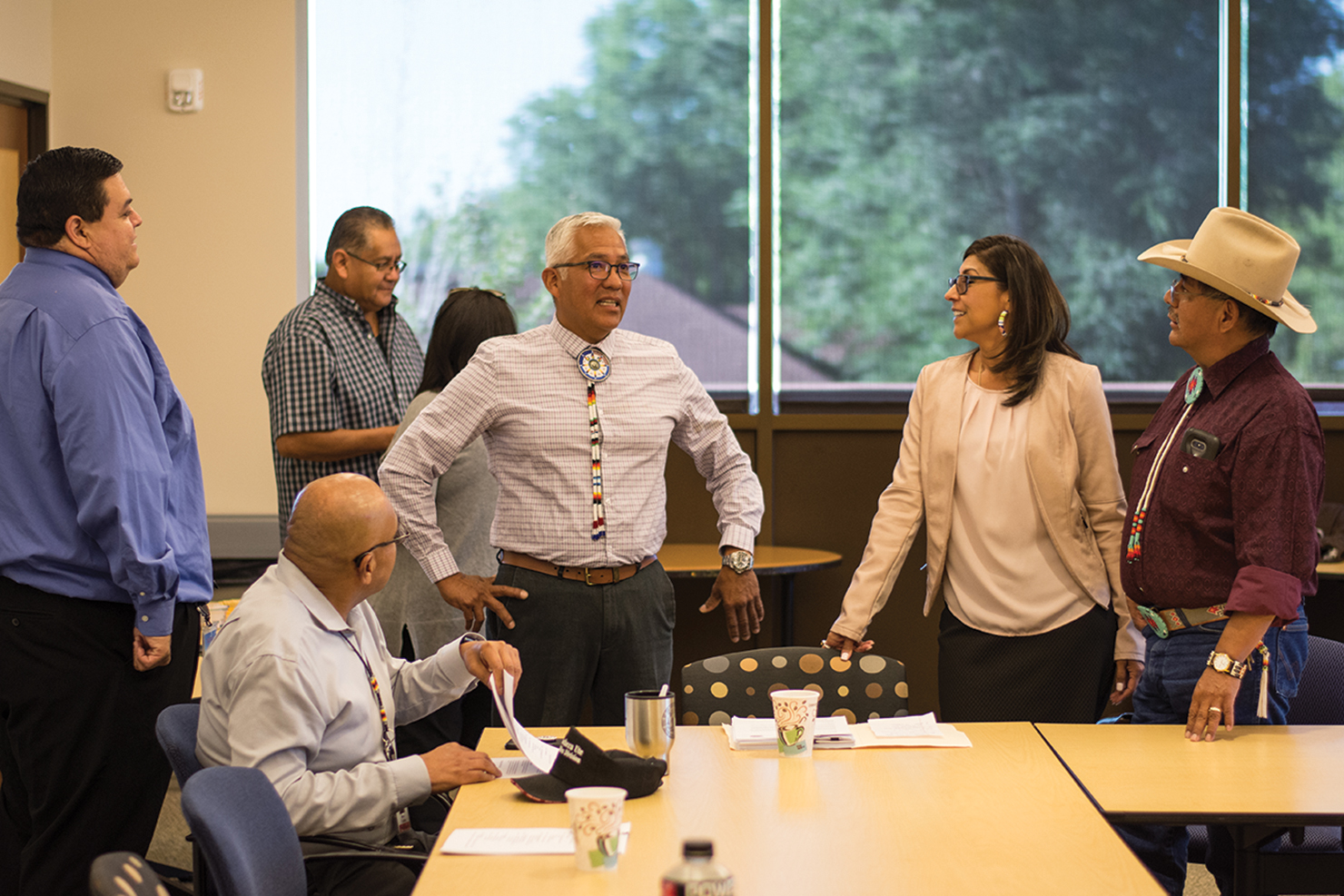The Southern Ute Indian Tribe hosted the most recent quarterly Tri-Ute meeting in Ignacio at the Leonard C. Burch tribal administration building. The meeting coincided with the beginning of the Southern Ute Tribal Fair and Rodeo, Friday, Sept. 13. Key presentations were made by the U.S. Forest Service and the Southern Ute Veterans Association. This was an informational meeting, due to the fact that a quorum was not met.
Southern Ute Chairman Christine Sage shared a memo from the University of Denver, citing their appreciation and gratitude for the gift of tribal flags. The University emphasized their efforts to honor the sovereignty of the Ute Tribes, while also acknowledging the U.S. Government’s past conflict with the Utes in regards to events leading to the Meeker Massacre in 1879. The conflict resulted in the forced removal of the White River Utes and the Uncompahgre Utes from their homelands in Colorado.
The meeting addressed the renaming process for the Gore mountain range, a topic carried over from the previous Tri-Ute Meeting. The Utes have proposed the new name to reflect the tribes, to be recognized as the “Nuche Range.”
“We are looking for our roots. We should be able to call it ours — these are Ute lands,” Ute Mountain Ute Councilwoman Prisllena NightStarr said. “What kind of legacy do we want to leave for our children?’ There has to be that initiative — not just to say it, but do it.”
The U.S. Geological Survey (USGS) is working with regional tribes, and all three Ute tribes are on board. Discussions include the renaming of Mt. Evens and the Gore Range, respectively. “The next step is signatures, we can take that task on,” remarked Southern Ute Councilman Adam Red.
The Southern Ute Veterans Association gave an update to tribal leadership regarding their efforts to have a Navy vessel christened the USS Ute. Historically Navy vessels have carried the names of Native American tribes.
“What’s happening today is the renaming of a salvage ship. For me it’s a huge honor,” said Raymond Baker, U.S. Navy Retired. “I approached the Southern Ute Veterans Association — we had a resolution signed to go forward with this process. I wanted the name to be ‘Ute’, it is all encompassing.” All three Ute Tribes are represented this way.
The first Navy vessel to bear the name USS Ute was a Navajo-class fleet tug constructed for the United States Navy during World War II, retired after more than three decades of service. The second was a Coast Guard vessel christened the “Ute” in 1988, that same ship was lost at sea in 1991, Baker explained.
“Currently it has passed through all approving branches of the Navy, there is one more document to be signed. The ship is already being built,” Baker explained. “We have a good chance of having this ship named the ‘Ute’ — all we have to do is have pen meet paper. The process is almost complete.”
Once construction is finalized, there will be a formal commissioning of the ship, and the naming ceremony.
“It means a lot to us, that are sailors,” remarked Southern Ute Veteran, Rudly Weaver. “Mr. Baker’s been working hard; the veterans’ group is working hard — it is a great honor.”
Dave McKee, Forest Service Recreation Staff Officer, with the reginal Rocky Mountain office, gave a presentation alongside Claire Harper, Cooperative Forestry Program Manager. While McKee addressed the renaming process of landmarks for state and federal agencies, Harper presented information regarding a federal Community Forest Grant Program.
The program’s aim and purpose is to create community owned forests that also benefit the communities themselves. Tribal Governments are qualified applicants. This national program has only received two tribal applications so far, according to Harper. The Forest Service is working on outreach to tribal communities, in an effort to spark interest.
Regionally, a project was funded in Costilla County, Colo., neighboring the community of San Luis. The community Forest project known as Batenburg Meadows, created permanent access to public lands for residents along Rito Seco Creek. The community is now organizing fishing and archery camps in this protected space.
In North Carolina, the Eastern Band of Cherokee used federal funding to create a community forest where the tribe is planning an interactive trail for public access and the sharing of knowledge.
These could be sacred lands, those lands do not need to be within or even adjacent to the reservation boundaries, Harper explained.
Dave McKee brought the conversation back around to the proposed renaming of Mt. Evans. “We want to encourage tribal involvement, he emphasized. “reflecting your histories, and your traditions.”








